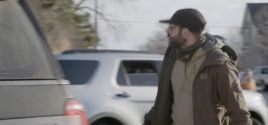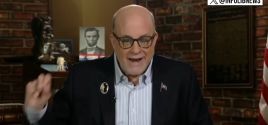You Have Every Right to Photograph That CopPolice and Photography: Can’t Stop the Signalby Gabe Rottman, ACLU ACLU.org May. 07, 2012 |
Popular 
Trump Expected to Pick Kevin Warsh, Son-in-Law of Zionist Billionaire Ron Lauder, as Fed Chair

Video Appears to Show Alex Pretti Spit at ICE, Kick Taillight Out of ICE Vehicle in Prior Confrontation

New TikTok CEO Told World Jewish Congress How They Censored Criticism of 'Zionists'

Israeli-American Council Asks Miriam Adelson and Haim Saban How They Control U.S. Politicians

Mark Levin Urges Trump to Strike Iran and Kill the Ayatollah and His Family
 There’s been an uptick in protest activity this month around the country–May Day saw a resurgence in the Occupy movement, and further protests are expected around the NATO summit in Chicago, set for May 20th. It’s a safe bet that the vast majority of protesters, police and bystanders are going to have mobile phones (market penetration of the devices in the United States in 2011 was literally more than 100%, meaning lots of folks have more than one, which is so American). It’s also a safe bet that most of those phones will have cameras. Some of those cameras will even be able to take broadcast-quality video. Law enforcement hates these camera phones. Since the emergence of the cheap, small CMOS chips that allow for a networked camera in every smartphone, police have increasingly tried to interfere with the right of private citizens to take pictures or video of police activities in public, including confiscating cameras, deleting photos and arresting these citizen journalists. We fear that such incidents will only increase as the spring and summer wear on. Accordingly, we signed a letter today along with Free Press and several other First Amendment advocacy groups urging the attorney general to protect Americans’ “right to record.” As we recently pointed out, as a legal matter it is “clearly established” that private citizens have the right under the First Amendment to take pictures and video images of police activity in public places (be aware that audio recording is a little more complicated). If the police interfere with that right, they actually may be held personally liable (that is, unable to invoke “qualified immunity” against a civil rights claim). And, while this is settled law, it’s worth stepping back and reflecting on why we have this right. The First Amendment was written specifically to protect the free and open discussion of political and government affairs. There’s no question that law enforcement is difficult and complex work, but it is also true that the police have unique powers to stifle this free and open discussion. The only true check against the misuse of police power is public oversight. The notion that every police action could potentially be captured on an iPhone dramatically enhances this check. Additionally, the “right to record” becomes even more imperative in the context of lawful protest. Assembly is a fundamental right, but it is also, almost by definition, inconvenient as a matter of civic comfort. Police officers on protest duty are sometimes set at cross-purposes: they have to protect the protesters while also controlling the protest. This often leads to overzealous enforcement, unnecessary crackdowns, wholesale arrests and constitutional violations. The right to record discourages those abuses, and provides a documentary record for later legal proceedings. More fundamentally, efforts by law enforcement to crack down on citizen journalism in public places are futile. In 1996, when cell phones had already evolved far beyond the “brick” phone of the mid-‘80s, less than two in 10 people had one. Today, 10 in 10 people have a cell phone, most of which have a camera that is linked to the internet. In New York, you can send an MMS picture directly to 911 at the click of a button. Attempts to keep public eyes off police activity are a game of whack-a-mole. You can’t stop the signal. Rather, law enforcement should embrace the “right to record” as a constitutional right, a protection against unfounded charges against the police and a valuable tool in the fight against crime. You can find the ACLU’s page “You Have Every Right to Photograph That Cop,” as well as our Photographers’ “Know Your Rights” resource online. |



